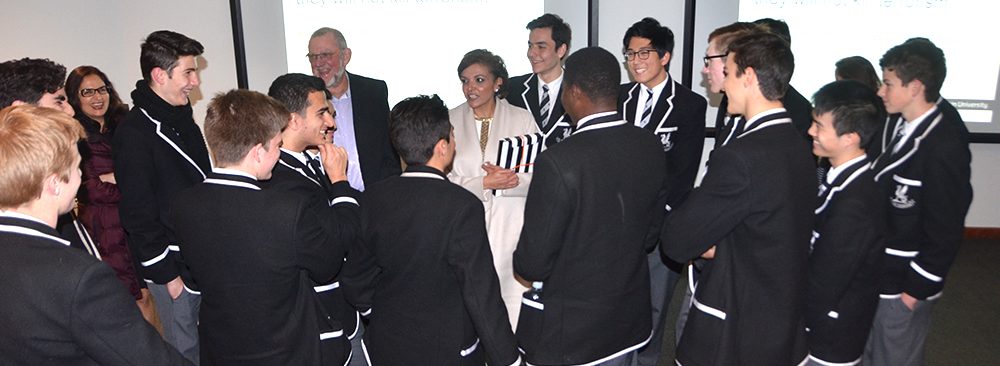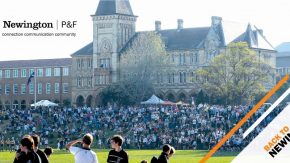Dr Anne Aly on Terrorism
Even as we publish the Black & White today the media is filled with the presumed terrorist attack in Bangkok, the loss of so many more innocent, civilian lives and the plunging of a city into chaos, gripped with fear of further attack from faceless assailants.
At the Centre for Ethics Lecture Series at Newington recently, Associate Professor Anne Aly of Curtin University drew a large crowd to discuss her research interests in the areas of terrorism studies and counter terrorism, with a focus on the public and policy responses to terrorism.
While answers seem far from our reach as governments grapple with responses, trying to prevent the violence, let alone understand the terrorists’ motivations, Professor Aly stated: “We are all in this together. Every country is dealing with the same issues around terrorism, violent extremism and social division—who becomes and terrorist and why? Who commits horrific acts we cannot even fathom?”
The Professor went on to warn of the simplicity in stereotyping terrorists—who can be any age, gender, and nationality. She would suggest that profiling is unsuccessful because there is not a particular terrorist profile.
“Some come from un-extraordinary lives until they become operative,” she warned.
One of the obvious questions is ‘why’. What are the environments or situations in which terrorism is allowed to flourish, and in which environments does radicalisation emerge? What is the role of individual psychology?
Professor Aly again explained such approaches have proven to have no quick fix answers. “Looking closely at operatives and former operatives has demonstrated the appearance of unlimited combinations of conditions that can answer ‘why’ someone becomes a terrorist, such as justifying violence in your head as bravery, believing your anger should be channeled and accepting that religion can be violent.”
Instead Professor Aly’s research has been in four particular areas:
- Hearing the stories of victims, survivors, and former terrorists
- Creating counter narratives for online radicalisation
- Studying the influence of propaganda
- Tracking the pathways of self-activators.
The evening went on to finish with an equally engaging Q&A session when Professor Aly took the majority of questions from young students in the audience covering topics such as utilising peer networks for de-radicalisation success, defining government funded and government endorsed terrorism and weighing up the resources currently put into a ‘reactionary’ approach, against producing persistent ‘counter’ or ‘alternative’ narratives to violence, such as negotiation and choice at very early stages.
One uncontested reality is that the Centre for Ethics lectures always leave the debate still raging, when we have to turn off the lights and go home.






